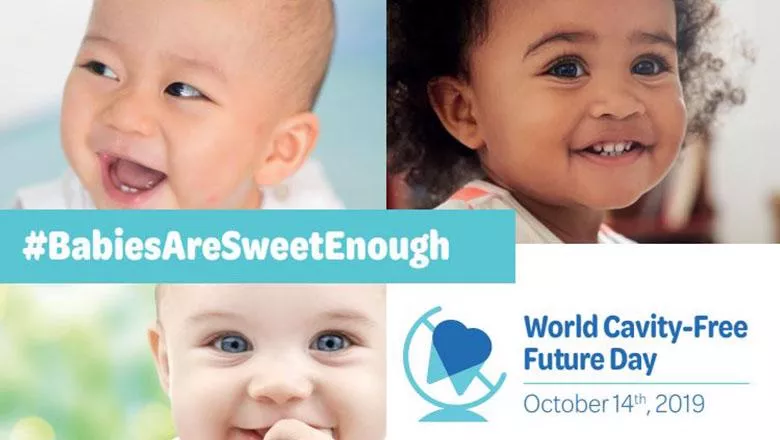01 October 2019
World Cavity-Free Future Day
World Cavity-Free Future Day, an initiative founded by ACFF, runs annually globally, and is now in its fourth year.

Worldwide, between 60–90% of school children and nearly 100% of adults have tooth decay (dental caries) with rotten teeth being the single biggest contributor for British children being admitted to hospital.
World Cavity-Free Future Day, an initiative founded by the Alliance for a Cavity-Free Future (ACFF), aims to tackle this issue of tooth decay.
In 2011, the Alliance for a Cavity-Free Future (ACFF), a not-for-profit organisation formed by a group of dental professionals, and chaired by King’s College London Professor, Nigel Pitts, launched the ACFF’s very first Chapter in Colombia.
Eight years on and 28 chapters (spanning 40 countries) later, the ACFF continues its work towards the goal that every child born after 2026 will remain cavity-free throughout their lifetime.
World Cavity-Free Future Day runs annually globally, and is now in its fourth year. This year, it’s on Monday 14th October and the hashtag #BabiesAreSweetEnough is headlining the campaign, emphasising the need to limit the sugar intake of children, particularly for under twos.
Families are encouraged this World Cavity-Free Future Day to:-
- Increase the age at which food and drinks containing sugar are introduced to children’s diets and reduce the frequency.
- Brush children’s teeth twice a day, with an age appropriate amount of fluoride toothpaste (at least 1,000ppm).
- Ensure children visit at dentist before they’re one year old.
- Be mindful that bottle-feeding and breastfeeding beyond 12 months increases a child’s risk of caries.
Each of the ACFFs chapters will be campaigning in their respective localities to spread the message this awareness day.
Global Chair, Professor Nigel Pitts said “Only through cooperation and action will make a difference in controlling the dental caries process with families all over the world.”
More information and resources on cavity prevention can be found on www.acffglobal.org

